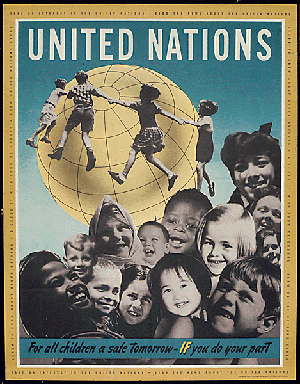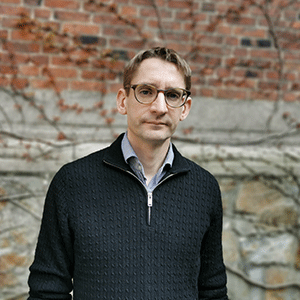Knowledge and emotions of the global: children’s encounters with the global imaginary after 1945
Seminar with Björn Lundberg.
 In the decades following 1945, children and youth in the global North became the focus of new efforts to shape global consciousness and emotional engagement with the world. In the shadow of the Cold War, governments and civil society actors sought to mobilize young people’s compassion, solidarity, and sense of responsibility for a better world. Through school curricula, educational campaigns, and children’s media and literature, knowledge of the world—and particularly of the so-called Third World—was framed not only as valuable information, but as a moral and emotional imperative. This talk explores how knowledge and emotions were entangled in shaping the global imaginary after 1945, and how children were addressed as future-oriented actors in a world marked by fear and uncertainty. Emphasizing both the hopes and anxieties of the postwar era, it highlights how global knowledge was promoted as a way to counteract fear—especially the fear of nuclear war—and to foster a sense of agency among the young in confronting global injustice.
In the decades following 1945, children and youth in the global North became the focus of new efforts to shape global consciousness and emotional engagement with the world. In the shadow of the Cold War, governments and civil society actors sought to mobilize young people’s compassion, solidarity, and sense of responsibility for a better world. Through school curricula, educational campaigns, and children’s media and literature, knowledge of the world—and particularly of the so-called Third World—was framed not only as valuable information, but as a moral and emotional imperative. This talk explores how knowledge and emotions were entangled in shaping the global imaginary after 1945, and how children were addressed as future-oriented actors in a world marked by fear and uncertainty. Emphasizing both the hopes and anxieties of the postwar era, it highlights how global knowledge was promoted as a way to counteract fear—especially the fear of nuclear war—and to foster a sense of agency among the young in confronting global injustice.
Bio
 Björn Lundberg is associate professor of history at Lund University specializing in the history of childhood, youth, and internationalism. His research explores how children and young people have been engaged as political and moral actors in the shaping of global society after 1945. He currently leads a project funded by the Swedish Research Council on preparedness education and children’s roles in civil defence during the Cold War.
Björn Lundberg is associate professor of history at Lund University specializing in the history of childhood, youth, and internationalism. His research explores how children and young people have been engaged as political and moral actors in the shaping of global society after 1945. He currently leads a project funded by the Swedish Research Council on preparedness education and children’s roles in civil defence during the Cold War.
Contact: Daniel Steinbach, Jessica Hanser & Karen Vallgårda
Map of South Campus
View directions.
View on map of the Faculty of Humanities - South Campus.
View map of South Campus (pdf).
